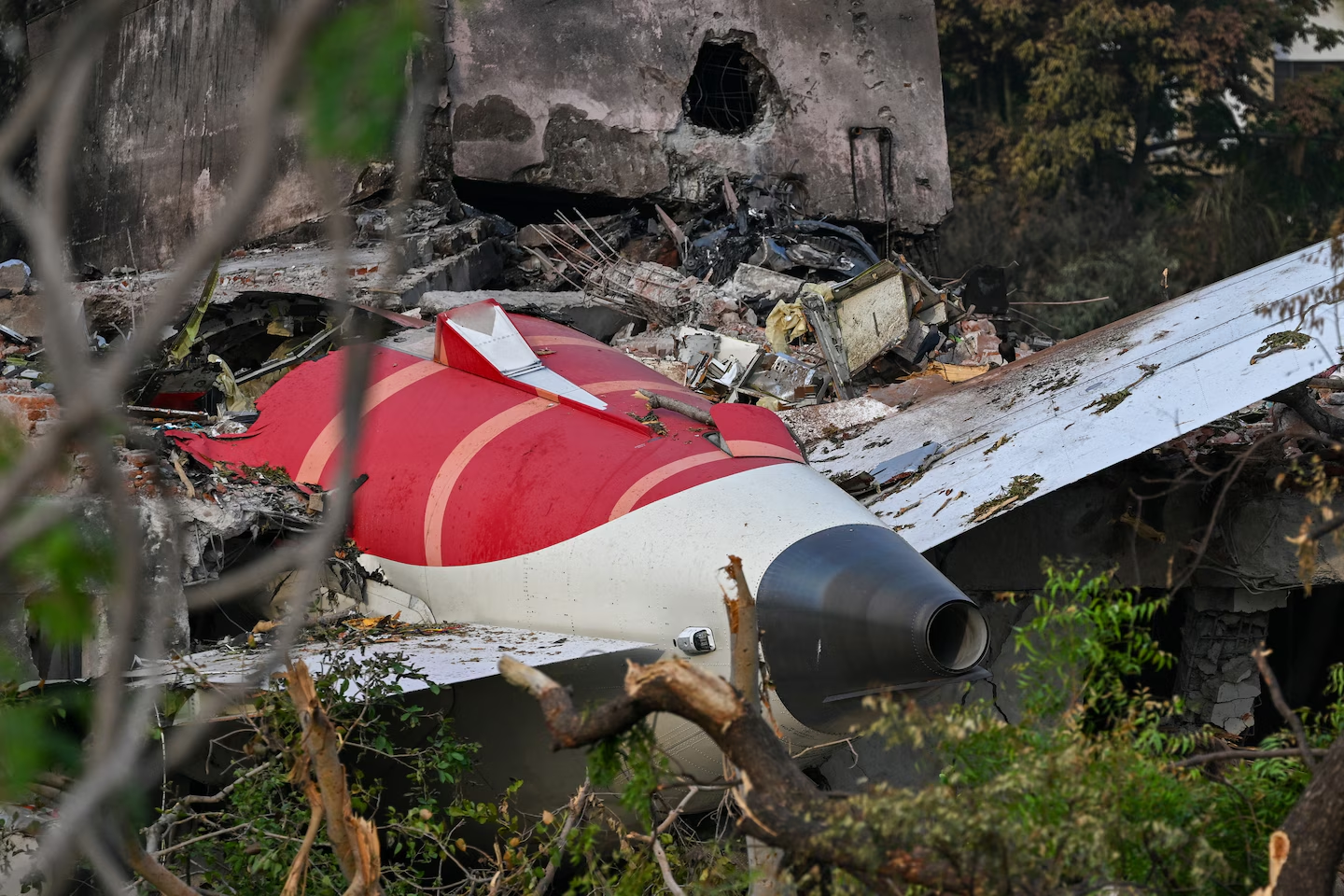Indian investigators looking into the crash of Air India Flight 171 said that both engines stopped receiving fuel shortly after takeoff in a preliminary report on the nation’s worst airline crash in decades.
The new information from India’s Aircraft Accident Investigation Bureau about the June 12 crash indicates that the switches controlling fuel to both engines entered the cutoff position early into the flight, causing the plane to lose thrust.
The Boeing 787 took off from the Ahmedabad airport in western India before crashing into a dormitory at a medical college, causing a massive fireball. All but one of the 242 people on the plane were killed, as were 19 people on the ground. One passenger made a miraculous escape from the jet.
Audio from the cockpit suggests both pilots were confused over the change to the switch setting. “In the cockpit voice recording, one of the pilots is heard asking the other why did he cutoff,” the report’s authors write. “The other pilot responded that he did not do so.”
The switches have safeguards designed to stop them being inadvertently moved.
“Each switch has a mechanical lock where you have to lift the switch up and then move it, so it’s highly unlikely for switches like this to be inadvertently moved absent some mechanical failure,” said Jeff Guzzetti, the former director of the Federal Aviation Administration’s accident investigation division.
Seconds later, the switches were flipped back into the run position, standard procedure for restarting the engines. But so early in the flight, restarting the engines wouldn’t have had the desired effect, said Ross “Rusty” Aimer, an aviation consultant and retired United Airlines pilot.
“At that altitude, there’s no chance in hell that they can relight that in time to gain speed and power and altitude,” Aimer said. The airliner reached an altitude of only several hundred feet before crashing.
The preliminary report was released about 1 a.m. local time Saturday. The investigation is still in its early stages and is not likely to be complete for more than a year.
Based on the preliminary findings, the crash was probably caused by human error, Aimer said, though he added that he would wait for a final report to render judgment. “There’s a one in a million or billion chance that the gods of electronics got together and screwed this thing up,” he said, referring to the possibility that the switches malfunctioned independent of the pilots’ a



